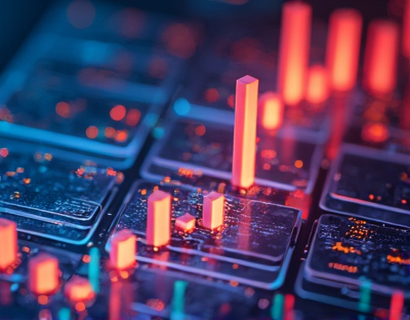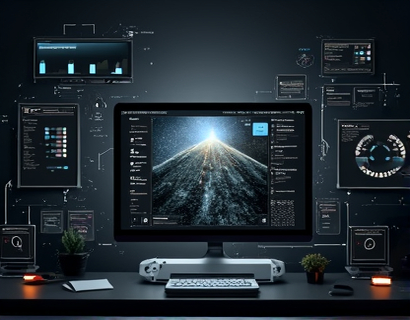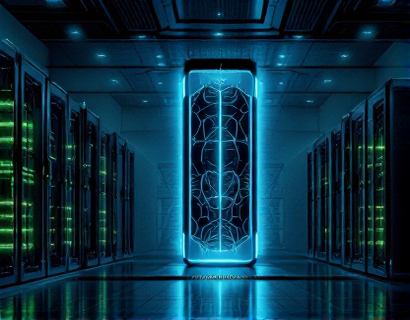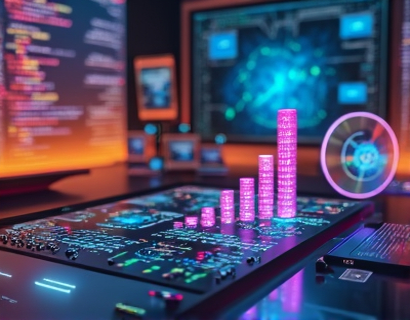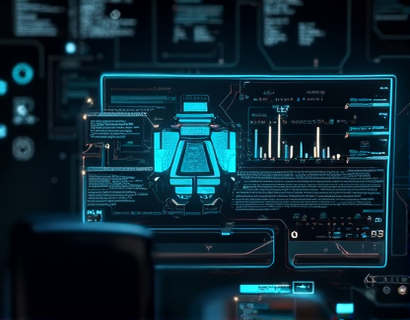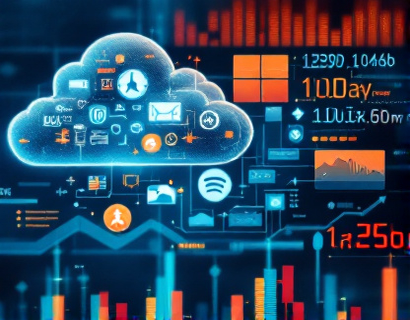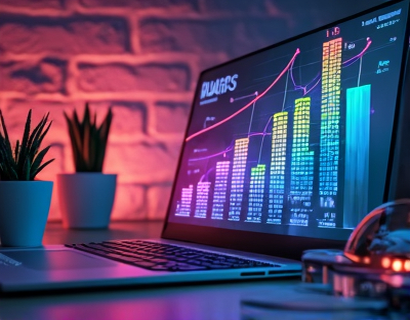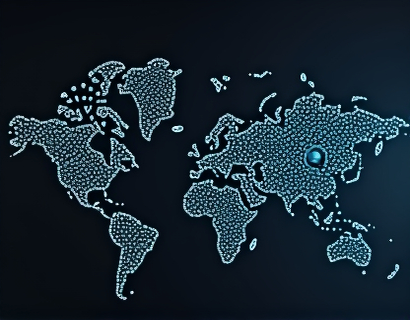Decentralized AI and Crypto: Transforming Digital Experiences for the Next Generation of Ucosystem Applications
The intersection of decentralized technologies, artificial intelligence, and cryptocurrency is giving rise to a new era of digital applications that promise to revolutionize user experiences. This fusion is not just about combining existing technologies but creating a paradigm shift in how we interact with digital services. The next generation of decentralized applications, often referred to as Ucosystem apps, leverages the power of AI and blockchain to offer unprecedented levels of security, transparency, and user control. This article delves into the transformative potential of these technologies and their profound impact on the digital landscape.
The concept of decentralized applications, or dApps, is not new. However, the integration of AI and cryptocurrency has opened up new avenues for innovation. Traditional centralized applications rely on a single entity to manage and control data, which can lead to vulnerabilities and a lack of user trust. In contrast, decentralized applications distribute control across a network of nodes, ensuring that no single point of failure exists. This decentralization, combined with the immutability and security provided by blockchain, creates a robust foundation for building trustworthy and resilient digital services.
Artificial intelligence plays a crucial role in enhancing the functionality and user experience of these decentralized applications. AI algorithms can process vast amounts of data to provide insights, predictions, and personalized experiences that were previously unimaginable. For instance, AI-driven chatbots can offer 24/7 customer support, understanding user queries and providing relevant responses in real-time. These chatbots can operate on decentralized platforms, ensuring that user data remains private and secure.
One of the key benefits of decentralized AI applications is the enhancement of user engagement. Traditional apps often struggle with user retention due to privacy concerns and data misuse. Decentralized applications, by design, prioritize user data sovereignty. Users have full control over their data, deciding what information to share and with whom. This empowerment fosters a deeper connection between users and the applications they interact with, leading to higher engagement and loyalty.
The integration of cryptocurrency further amplifies the value proposition of these decentralized applications. Cryptocurrencies serve as a medium of exchange within the ecosystem, enabling seamless transactions without the need for intermediaries. Smart contracts, self-executing contracts with the terms directly written into code, automate and enforce agreements, reducing the risk of fraud and increasing efficiency. This combination of AI, decentralization, and cryptocurrency creates a synergistic effect that drives innovation and user adoption.
To understand the practical implications of this technology fusion, consider the realm of decentralized finance (DeFi). DeFi platforms leverage AI to analyze market trends, predict price movements, and optimize trading strategies. These AI-driven tools are accessible to users through decentralized applications, providing them with advanced financial services without the need for traditional banking infrastructure. The transparency of blockchain ensures that all transactions are visible and verifiable, enhancing trust and security.
Another area where decentralized AI and crypto are making waves is in the domain of content creation and distribution. Decentralized platforms can use AI to curate and recommend content based on user preferences, ensuring a more personalized experience. Creators can monetize their work directly through cryptocurrency, bypassing traditional gatekeepers. This not only benefits creators by giving them more control over their content but also rewards users with unique and high-quality content.
The potential for decentralized AI applications extends beyond finance and content creation. In the healthcare sector, AI-powered decentralized applications can analyze medical data to provide diagnostic insights while ensuring patient privacy. These applications can operate on a blockchain network, where data is encrypted and only accessible to authorized parties. This approach not only enhances data security but also facilitates collaborative research and improved patient outcomes.
In the realm of supply chain management, decentralized AI applications can track products from origin to destination, ensuring transparency and authenticity. AI algorithms can analyze data from various points in the supply chain, identifying bottlenecks and optimizing logistics. Smart contracts can automate payments and ensure compliance with regulations, reducing the risk of fraud and increasing efficiency.
The development of these decentralized AI applications is driven by a community of tech-savvy innovators and early adopters who are passionate about the potential of blockchain and AI. These individuals are at the forefront of experimenting with new use cases and pushing the boundaries of what is possible. Their efforts are crucial in validating the technology, identifying use cases, and building the ecosystem necessary for widespread adoption.
As the technology matures, we can expect to see more sophisticated and user-friendly decentralized applications. The user interface and experience will become more intuitive, making it easier for the general public to adopt and benefit from these innovations. Developers will continue to refine AI algorithms, improving their accuracy and efficiency. The integration of advanced AI techniques, such as machine learning and natural language processing, will further enhance the capabilities of decentralized applications.
However, the journey towards widespread adoption is not without challenges. Regulatory frameworks need to evolve to accommodate these new technologies, ensuring that they are used responsibly and ethically. Education and awareness are also critical, as many users are still unfamiliar with blockchain and AI concepts. Initiatives to demystify these technologies and highlight their benefits will play a vital role in driving adoption.
In conclusion, the fusion of decentralized AI and cryptocurrency is poised to transform digital experiences in profound ways. By leveraging the strengths of each technology, the next generation of decentralized applications offers enhanced security, transparency, and user control. These innovations are not just technical advancements but a shift in how we perceive and interact with digital services. As the ecosystem continues to grow and evolve, the potential for new applications and use cases is limitless, promising a future where technology serves the needs of users in a more equitable and empowering manner.



